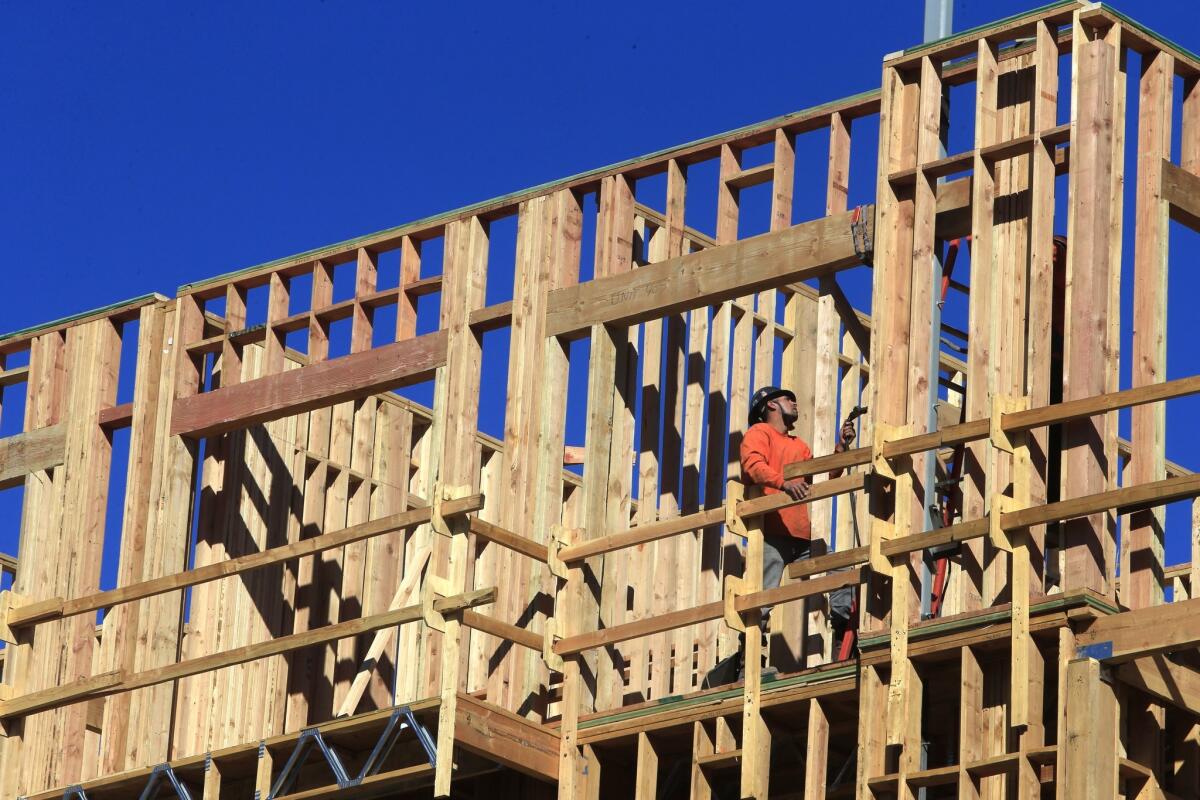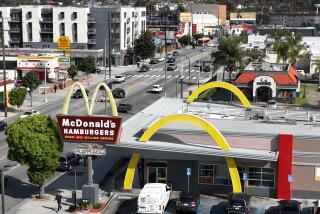Opinion: Raise the minimum wage, but don’t forget about the cost of housing

Raising wages without building more housing increases demand without adjusting supply and could push up rents, says a study author.
One of the best reasons to raise L.A.’s minimum wage is the region’s incredibly high cost of housing. Metropolitan Los Angeles is ranked the least affordable rental market in the nation because the city has a dual problem -- low incomes and high costs.
A worker would have to earn $33 an hour to afford the average apartment, KPCC reported this year. The state minimum wage of $9 an hour doesn’t have the same buying power in Los Angeles that it does in Bakersfield or Humboldt. So it makes sense to set a higher minimum wage in a pricey urban area.
But, what if the minimum wage increase prompts landlords to jack up the price of rent?
During the City Council’s minimum wage hearings last week, economist Christopher Thornberg warned that’s what could happen. L.A. housing prices are so high because the city -- and the region, really -- has failed to build enough homes to match population growth over the last two decades. Raising wages without building more housing just increases demand without adjusting supply, he argued.
“It will simply push rents up, which will, in turn, absorb a lot of those gains” in wages, Thornberg said.
It should be noted that Thornberg’s firm, Beacon Economics, was hired by the Los Angeles Chamber of Commerce to produce one of the three reports analyzing Mayor Eric Garcetti’s proposed $13.25 wage hike. The Beacon report and Thornberg’s op-ed in The Times said the proposal doesn’t make sense. Much of the positive impact of the pay increase would be felt in surrounding cities, while the city would bear the brunt of the negative effects, namely slow job growth and reduced tax revenue. Two other reports said the wage hike would mostly benefit the city.
But Thornberg is not the first or only person to warn that raising wages without addressing housing could just make housing more expensive. Rosalie Ray with UCLA’s Center for the Study of Inequality made the same point last year during a Westside Urban Forum discussion on the rental rate crisis in L.A. She was a coauthor of a study that said Los Angeles is least affordable rental market in the nation and that the solution was to increase renter earnings and the supply of affordable housing. The Times editorial board has argued that as well.
Although City Hall is totally focused on raising the minimum wage, there is little discussion or action on housing policy.
Last year Garcetti set a goal of building 100,000 new housing units in L.A. by 2021, but that requires overhauling the city’s development process and ramping up housing production now. Metro last week voted to focus on building affordable housing along the new transit lines -- a good start. There are a handful of City Council initiatives out there. But larger systemic reform that makes it easier and faster to build both market rate and subsidized homes is controversial and hard to move. And so it’s not really moving.
That means a minimum wage hike could take effect in a matter of months, while efforts to increase the supply of homes could take years. In the meantime, expect rents to go up.
The potential increase in housing costs is not a reason to reject a minimum wage increase. But it would be political malpractice if L.A.’s leaders adopted a 30% to 50% increase in the minimum wage without also seriously accelerating efforts to build more housing.
For more opinions, follow me @kerrycavan
More to Read
A cure for the common opinion
Get thought-provoking perspectives with our weekly newsletter.
You may occasionally receive promotional content from the Los Angeles Times.







